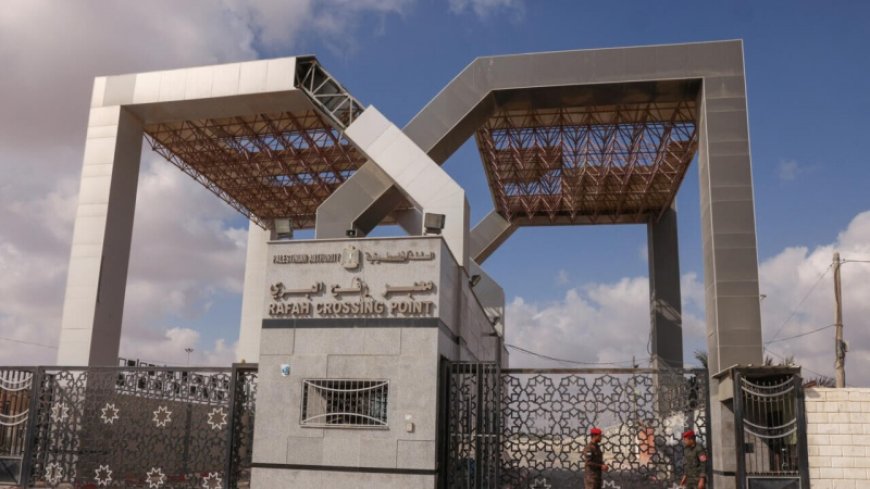Doctors Without Borders Warns of Worsening Situation in Gaza Due to Closure of Rafah Crossing
In a dire plea for humanitarian aid, Doctors Without Borders (MSF) has sounded the alarm over the escalating crisis in Gaza, exacerbated by the closure of the Rafah crossing

In a dire plea for humanitarian aid, Doctors Without Borders (MSF) has sounded the alarm over the escalating crisis in Gaza, exacerbated by the closure of the Rafah crossing. Aurélie Godard, the head of MSF's team in Gaza, emphasized the critical need for clean water, food, and medical supplies, cautioning that the current conditions have reached a perilous juncture.
Reports from the region indicate that the closure of the Rafah crossing has severely impeded the flow of essential aid into the Gaza Strip. Godard underscored the urgency of reopening the crossing to facilitate the delivery of humanitarian assistance, including medical equipment, food, and fuel, which are now in short supply.
The closure of the Rafah crossing comes amid heightened tensions in the region, with the Israeli army's recent occupation of the crossing point in Rafah sparking international concern. Antonio Guterres, the Secretary-General of the United Nations, has condemned the move, warning of the potential for a humanitarian disaster and urging all parties to seek a ceasefire.
Despite calls for de-escalation, the Israeli government has pressed forward with its military operations in Rafah, drawing criticism from the international community. The decision to intensify attacks on the southern Gaza Strip city has raised fears of further violence and displacement among the civilian population.
While the Hamas movement has signaled willingness to engage in ceasefire discussions, Israeli Prime Minister Benjamin Netanyahu's administration appears determined to pursue military objectives in Rafah. This stance has fueled speculation that political considerations may be driving the Israeli government's actions, as it seeks to bolster its position amid domestic turmoil.
The closure of the Rafah crossing has not only cut off vital aid to Gaza but has also compounded the suffering of its residents, many of whom are now facing dire circumstances. With the health system already teetering on the brink of collapse, the inability to access medical care and supplies further jeopardizes the well-being of Gaza's population.
As the crisis deepens, the international community faces mounting pressure to intervene and address the root causes of the conflict. The plight of Gaza underscores the urgent need for concerted efforts to alleviate humanitarian suffering and pave the way for a lasting peace in the region.













































